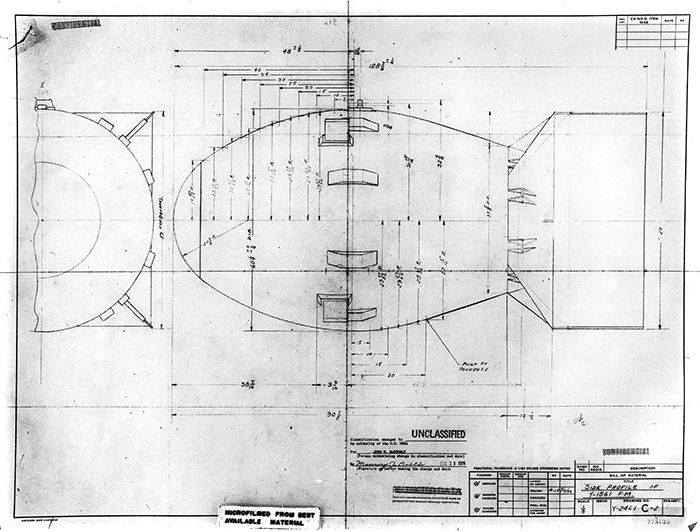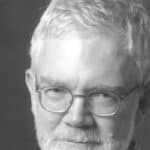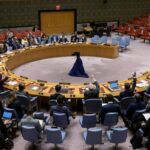The precedent the world—and Russia—has rejected
By Nina Tannenwald, David Holloway | October 14, 2022
 Declassified diagram of Fat Man atomic bomb dropped on Nagasaki, Japan, in August 1945. Image courtesy of Los Alamos National Laboratory.
Declassified diagram of Fat Man atomic bomb dropped on Nagasaki, Japan, in August 1945. Image courtesy of Los Alamos National Laboratory.
In his belligerent speech on September 30 announcing the annexation of four Ukrainian regions, Russia’s president, Vladimir Putin, made the alarming assertion that the United States’ use of atomic bombs at the end of World War II “created a precedent.” It is true of course that the United States did use the bomb against Japan in August 1945, but Putin’s use of the term “precedent” suggests that he was trying to use the atomic bombings of Hiroshima and Nagasaki as a justification for the possible Russian use of nuclear weapons in the war in Ukraine.
Putin’s assertion is wrong.
The use of the bomb in August 1945 could have set a precedent for further use, but it has not done so. The most remarkable fact of nuclear history is that the bomb has not been used in war since 1945—a 77-year tradition of non-use.
This tradition is not merely the result of luck but of effort. Since 1945, numerous resolutions in the United Nations have confirmed that nuclear weapons are instruments of terror and mass destruction, and that nuclear war must be avoided. Even the nuclear-armed states justify their possession as preventing war. The international community constructed a global nuclear order of deterrence and nonproliferation (and, less successfully, disarmament) in the effort to avert nuclear war.
The Soviet Union/Russia has been a key participant in the creation and maintenance of this order. During the Cold War, Soviet leaders consistently condemned the use of the atomic bomb on Japan and called it a war crime. They also portrayed it as an anti-Soviet act, a sign of American callousness and perfidy. Putin himself has expressed this view strongly. In 2007 he told a meeting of social studies teachers that no one should try to make Russia feel guilty about the Great Purge of 1937: “in other countries worse things happened,” such as the use of the atomic bomb against civilian populations in Japan.
In 2013, Putin declared in an interview with the Kremlin-funded Russia Today television channel that “we know Stalin now like never before. He was a dictator and a tyrant, but I very much doubt that in the spring of 1945, if he had been in possession of an atomic bomb, he would have used it against Germany.” In Putin’s view, atomic bombing of civilians would be too much even for the likes of Stalin, who had no problem carrying out horrendous purges.
Putin’s judgment is certainly not something one must accept. Nevertheless, his statements make clear that he viewed the atomic bombings with a unique opprobrium.
Putin’s recent assertion that the 1945 atomic bombings constitute a precedent thus contrasts oddly with his previous condemnations of them. The assertion is also dangerous. As an editorial in the Russian newspaper Nezavisimaia Gazeta stated last week—two days before Putin’s speech—“to allow the possibility of a nuclear conflict, in thoughts and words, is a sure step toward allowing it in reality.”
US leaders, too, have rejected the idea that 1945 is a precedent. In a speech at Hiroshima in 2016, President Obama spoke of “the future we can choose—a future in which Hiroshima and Nagasaki are known not as the dawn of atomic warfare, but as the start of our own moral awakening.” The Peace Memorial Park and the Peace Memorial Museum in Hiroshima commemorate the suffering that atomic bombs caused and remind the world that nuclear weapons should never be used.
Russian leaders know this, even while wielding their nuclear threats. On January 3 of this year, Russia joined with the other four permanent members of the UN Security Council—the United States, Britain, France, and China—to reaffirm the Reagan-Gorbachev formula that “a nuclear war cannot be won and must never be fought.”
Putin would do well to keep this in mind. It will help remind him that if he ever did order a nuclear strike, people would be discussing how high it ranked in the annals of political crime.
Together, we make the world safer.
The Bulletin elevates expert voices above the noise. But as an independent nonprofit organization, our operations depend on the support of readers like you. Help us continue to deliver quality journalism that holds leaders accountable. Your support of our work at any level is important. In return, we promise our coverage will be understandable, influential, vigilant, solution-oriented, and fair-minded. Together we can make a difference.
Keywords: Hiroshima, Nagasaki, Putin, Russia-Ukraine, Ukraine, nonproliferation, nuclear weapons
Topics: Opinion
















Even if it sounds strange: articles like this make nuclear war more likely! Nuclear deterrence works only if it is credible. If its credibility is undermined, it works correspondingly worse and nuclear war becomes more likely. Or it is increased by even more threats, which Putin is apparently currently trying to do.
Conclusion: the Third World War will occur exactly when this is considered impossible by the official side.
This is all well and good, but I think we can safely say that Putin has become unhinged. He has backed himself and Russia into a corner, and a cornered animal is a very dangerous one. However, a cornered animal can be caught without harm to oneself with a little ingenuity.
The author mentions a Russian editorial that says- “to allow the possibility of a nuclear conflict, in thoughts and words, is a sure step toward allowing it in reality.” The nuclear threats coming from Putin have done exactly that. Is the man unhinged? Absolutely! Is he the only one in Russia who cavalierly discusses the use of nuclear weapons- absolutely not! His threats have opened the door to discussion and encouragement for nuclear strikes against London and Washington, on nation news programs no less. There have been protests on the streets in Moscow demanding that Washington be bombed. We have… Read more »